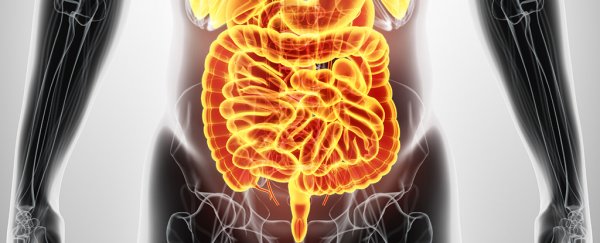Usually, the reason you have to watch your salt intake has to do with the health of your cardiovascular system. But our brains can also suffer from excess dietary salt.
While high blood pressure would be an obvious place to look for a cause, the details have turned out to be a little more complicated - and they're pointing to yet another bridge linking the gut with the brain.
Back in January, researchers from the Feil Family Brain and Mind Research Institute in New York used mice to trace the biochemical pathway responsible for raising the risk of stroke and dementia in people who tuck into too much sodium.
It's been clear for a few years now that diets high in salt put us at increased risk of something called cerebral small vessel (CSV) disease.
This umbrella term covers all kinds of abnormalities, involving a general restriction of the brain's capillaries, which in turn can lead to an increased risk of diseases like stroke and dementia.
Of course, linking salty diets with problems in the brain's blood vessels isn't exactly surprising. At least, it shouldn't be, given the sodium ion's talent for drawing water into the vascular system and pumping up the pressure in what's known as hypertension.
But in science, even the most basic assumptions deserve a kicking. It's a good thing, too, because it turns out this link between the risk of stroke and dementia and salt intake might not solely come down to elevated blood pressure.
The research team set out to find an alternative explanation in the wake of research suggesting good old table salt has a hand in encouraging autoimmune disease by making a particular type of white blood cell turn nasty.
These T-helper lymphocytes churn out a chemical that promotes inflammation called interleukin-17, which, given its known effects on blood vessels, made the researchers wonder if this could offer another explanation for the salt-CSV link.
Putting mice on a high salt diet, the researchers indeed found impaired cognition and signs of impaired circulation.
Keeping the whole 'mice aren't humans' caveat in mind, it made them a suitable model to study, especially given we can tinker with their genes.
Specifically, the team used both normal mice, and some that had their genes altered so that they over-produced interleukin-17, even on a relatively low-salt diet.
It all points to a diet high in salt provoking the gut's immune system into generating a signal that affects blood vessels in key parts of the brain – namely the hippocampus and the wrinkly outer layer, the cortex.
Crucially, this impairment was present even if high blood pressure wasn't. That means even if we were to manage the hypertension that results from a diet high in sodium, an increased risk of stroke and dementia could persist.
Interfering with this immunological pathway helped reduce signs of cognitive impairment. Better still, simply reducing the amount of salt also helped.
For the health-conscious among us, those results equal one more reason to pay attention to what goes into our mouths and try to cut back on the sodium to roughly less than 5 grams a day where possible.
But there's another message to take away from this study.
Our gut and our central nervous system are looking like temperamental BFFs, swapping messages of love and hate across a network of neurological and biochemical telegraph lines.
Just this year there have been studies revealing new gut-brain neural circuits, molecular pathways connecting gut microflora and brain cells, and links between diet and mood disorders.
This all joins a growing body of research that associates the makeup of our digestive system's microbial citizens with the development of Parkinson's disease.
You can bet that in 2019, we'll be seeing more studies that narrow down the complex interplay of microbes, immune system, and neurology that binds the gut and the brain into a complex system.
There are almost certainly more links lurking between these two vital body systems. Finding them could make all the difference to our mental health.
This research was published in Nature Neuroscience.
